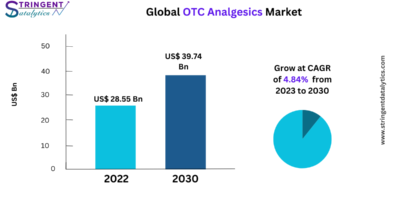The in vitro diagnostics quality control market pertains to the development, manufacturing, and distribution of quality control materials and solutions used in the field of in vitro diagnostics (IVD). These quality control products are crucial for ensuring the accuracy, reliability, and precision of diagnostic test results generated by IVD instruments and assays in clinical laboratories, hospitals, and other healthcare settings.
Key Components and Aspects of the In Vitro Diagnostics Quality Control Market:
- Quality Control Materials: In vitro diagnostics quality control products include control materials that mimic patient samples and contain known concentrations of analytes or biomarkers relevant to specific diagnostic tests. These control materials are used to monitor the performance of IVD assays, verify instrument accuracy, detect analytical errors, and assess inter-laboratory variability.
- Types of Quality Controls: Quality control materials are available in various formats, including liquid controls, lyophilized controls, multi-analyte controls, and specific analyte controls tailored to different disease areas and testing methodologies (e.g., chemistry, hematology, immunoassay, molecular diagnostics). Controls may also be categorized as assayed controls (with assigned target values) or unassayed controls (for user-defined validation).
- Control Levels and Ranges: Quality control materials are characterized by different analyte concentrations or target values, representing clinically relevant ranges and levels of analyte concentrations encountered in patient samples. Multiple levels of control materials (e.g., low, medium, high) are often available to assess the entire analytical measurement range of the diagnostic assay.
- Frequency of Testing: Quality control materials are typically tested at regular intervals (e.g., daily, weekly) as part of laboratory quality assurance protocols and regulatory requirements. Routine testing of quality controls helps monitor assay performance, detect shifts or trends in instrument accuracy, and troubleshoot analytical issues in real time.
- Instrument Compatibility: In vitro diagnostics quality control products are designed to be compatible with a wide range of IVD instruments, analyzers, and platforms used in clinical laboratories. Control materials may be specific to particular instrument models or assay methods, requiring validation and verification to ensure accurate results and instrument compliance with regulatory standards.
- Regulatory Compliance: Manufacturers of in vitro diagnostics quality control products must adhere to regulatory requirements and quality standards established by regulatory agencies such as the U.S. Food and Drug Administration (FDA), the European Medicines Agency (EMA), and other national health authorities. Compliance with standards for medical device manufacturing, quality management systems, and performance validation is essential for product registration, market approval, and user confidence.
Market Dynamics:
- Growing Demand for Quality Assurance: The increasing demand for accurate and reliable diagnostic testing, driven by aging populations, rising disease prevalence, and advancements in personalized medicine, fuels demand for in vitro diagnostics quality control products. Quality assurance programs, proficiency testing, and regulatory oversight contribute to market growth and adoption in clinical laboratories worldwide.
- Expanding Test Menus and Assay Complexity: The expansion of test menus, biomarker panels, and molecular diagnostics drives demand for comprehensive quality control solutions capable of validating and monitoring complex assays, multiplex testing platforms, and emerging technologies such as next-generation sequencing (NGS) and digital PCR (dPCR). Quality control materials must encompass a diverse range of analytes, matrices, and sample types to support evolving testing needs.
- Regulatory Emphasis on Quality Management: Regulatory agencies and accreditation bodies emphasize the importance of quality management systems (QMS) and quality control practices in laboratory accreditation, proficiency testing, and compliance with regulatory standards (e.g., Clinical Laboratory Improvement Amendments [CLIA], ISO 15189). Adherence to Good Manufacturing Practices (GMP), traceability, and documentation requirements are critical for market success and regulatory compliance.
- Technological Advancements: Technological innovations in quality control materials, including commutable controls, third-party controls, and digital QC solutions, enhance performance monitoring, result interpretation, and data management in clinical laboratories. Automated QC processes, electronic QC records, and real-time analytics improve efficiency, reduce manual errors, and support data-driven decision-making in laboratory operations.
- Market Consolidation and Partnerships: The in vitro diagnostics quality control market is characterized by consolidation among manufacturers, acquisitions of niche players, and strategic partnerships between IVD companies and diagnostic laboratories. Collaboration with industry stakeholders, professional societies, and regulatory agencies fosters innovation, standardization, and best practices in quality control management.
Challenges and Future Outlook:
- Harmonization of Standards: Harmonizing standards, reference materials, and performance criteria for in vitro diagnostics quality control across regions and regulatory jurisdictions is essential for global market access, interoperability, and comparability of test results. Alignment with international standards (e.g., ISO 22870, ISO 23640) promotes consistency, quality assurance, and patient safety in diagnostic testing.
- Adoption of Digital QC Solutions: The adoption of digital QC solutions, including cloud-based platforms, connectivity interfaces, and data analytics tools, presents opportunities for streamlining QC processes, remote monitoring, and real-time quality management. Integration with laboratory information systems (LIS) and middleware solutions enhances workflow integration, data visualization, and quality control insights in laboratory operations.
- Education and Training: Education, training, and competency assessment programs are essential for ensuring proficiency, competence, and compliance with quality control protocols among laboratory staff. Continuous professional development, e-learning modules, and hands-on workshops promote best practices, error prevention, and quality improvement initiatives in laboratory medicine.
- Emerging Technologies and Applications: The integration of emerging technologies such as artificial intelligence (AI), machine learning (ML), and predictive analytics into quality control systems holds promise for optimizing QC workflows, predictive maintenance, and performance optimization in IVD laboratories. Leveraging data-driven insights and predictive algorithms enhances QC efficiency, risk management, and resource allocation in laboratory operations.
- Global Health Preparedness: Enhancing global health preparedness, pandemic response, and infectious disease surveillance requires robust quality control systems, rapid diagnostic testing, and interoperable data exchange platforms. Investing in scalable, adaptable QC solutions that can address emerging public health threats, pandemic outbreaks, and healthcare crises is crucial for strengthening diagnostic capacity and resilience in healthcare systems worldwide.
Get Free Exclusive PDF Sample Copy of This Research Report https://stringentdatalytics.com/sample-request/in-vitro-diagnostics-quality-control-market/16520/
Market Segmentations:
Global In Vitro Diagnostics Quality Control Market: By Company
Abbott Laboratories
Bio-Rad
Helena Laboratories
Ortho Clinical Diagnostics
Randox Laboratories
Roche
Seracare
Siemens Healthineers
Sun Diagnostics
Thermo Fisher Scientific
Sysmex
Quantimetrix
Global In Vitro Diagnostics Quality Control Market: By Type
Product
Service
Global In Vitro Diagnostics Quality Control Market: By Application
Hospitals
Clinical Laboratories
Research and Academic Institutes
Others
Global In Vitro Diagnostics Quality Control Market: Regional Analysis
The regional analysis of the global In Vitro Diagnostics Quality Control market provides insights into the market’s performance across different regions of the world. The analysis is based on recent and future trends and includes market forecast for the prediction period. The countries covered in the regional analysis of the In Vitro Diagnostics Quality Control market report are as follows:
North America: The North America region includes the U.S., Canada, and Mexico. The U.S. is the largest market for In Vitro Diagnostics Quality Control in this region, followed by Canada and Mexico. The market growth in this region is primarily driven by the presence of key market players and the increasing demand for the product.
Europe: The Europe region includes Germany, France, U.K., Russia, Italy, Spain, Turkey, Netherlands, Switzerland, Belgium, and Rest of Europe. Germany is the largest market for In Vitro Diagnostics Quality Control in this region, followed by the U.K. and France. The market growth in this region is driven by the increasing demand for the product in the automotive and aerospace sectors.
Asia-Pacific: The Asia-Pacific region includes Singapore, Malaysia, Australia, Thailand, Indonesia, Philippines, China, Japan, India, South Korea, and Rest of Asia-Pacific. China is the largest market for In Vitro Diagnostics Quality Control in this region, followed by Japan and India. The market growth in this region is driven by the increasing adoption of the product in various end-use industries, such as automotive, aerospace, and construction.
Middle East and Africa: The Middle East and Africa region includes Saudi Arabia, U.A.E, South Africa, Egypt, Israel, and Rest of Middle East and Africa. The market growth in this region is driven by the increasing demand for the product in the aerospace and defense sectors.
South America: The South America region includes Argentina, Brazil, and Rest of South America. Brazil is the largest market for In Vitro Diagnostics Quality Control in this region, followed by Argentina. The market growth in this region is primarily driven by the increasing demand for the product in the automotive sector.
Click Here, To Buy Premium Report https://stringentdatalytics.com/purchase/in-vitro-diagnostics-quality-control-market/16520/?license=single
The report has helped our clients:
- To describe and forecast the Market size, on the basis of various segmentations and geography, in terms of value and volume
- To measure the changing needs of customers/industries
- To provide detailed information regarding the drivers, restraints, opportunities, and challenges influencing the growth of the Market
- To gain competitive intelligence and uncover new opportunities
- To analyse opportunities in the Market for stakeholders by identifying high-growth segments in Market
- To strategically profile key players and provide details of the current competitive landscape
- To analyse strategic approaches adopted by players in the Market, such as product launches and developments, acquisitions, collaborations, contracts, expansions, and partnerships
About Stringent Datalytics
Stringent Datalytics offers both custom and syndicated market research reports. Custom market research reports are tailored to a specific client’s needs and requirements. These reports provide unique insights into a particular industry or market segment and can help businesses make informed decisions about their strategies and operations.
Syndicated market research reports, on the other hand, are pre-existing reports that are available for purchase by multiple clients. These reports are often produced on a regular basis, such as annually or quarterly, and cover a broad range of industries and market segments. Syndicated reports provide clients with insights into industry trends, market sizes, and competitive landscapes. By offering both custom and syndicated reports, Stringent Datalytics can provide clients with a range of market research solutions that can be customized to their specific needs.
Contact Us
Stringent Datalytics
Contact No- +1 346 666 6655
Email Id- sales@stringentdatalytics.com
Web- https://stringentdatalytics.com/




Leave a Reply